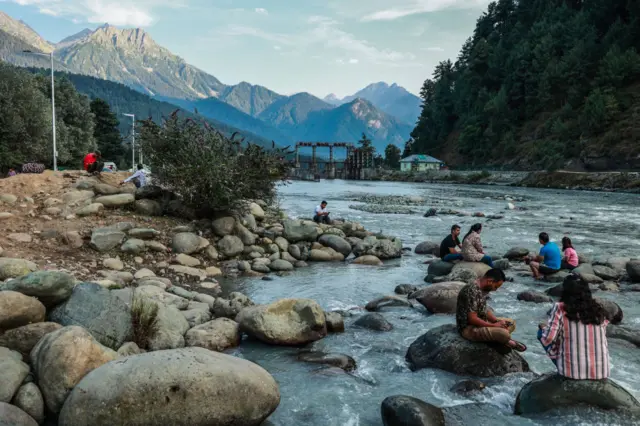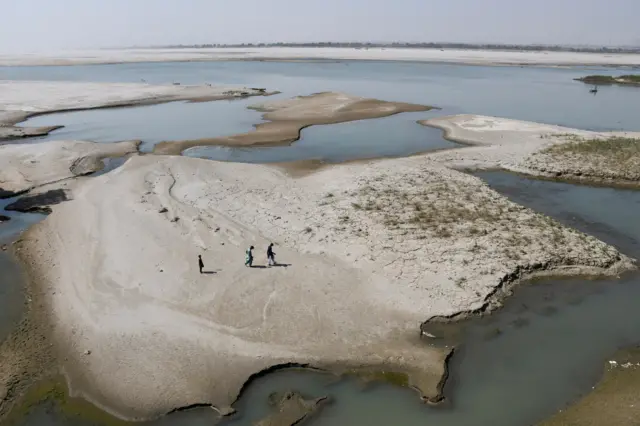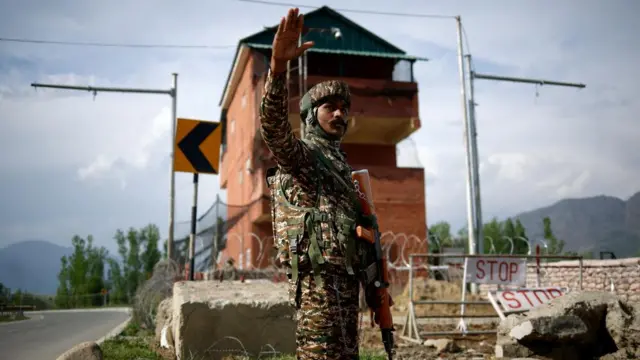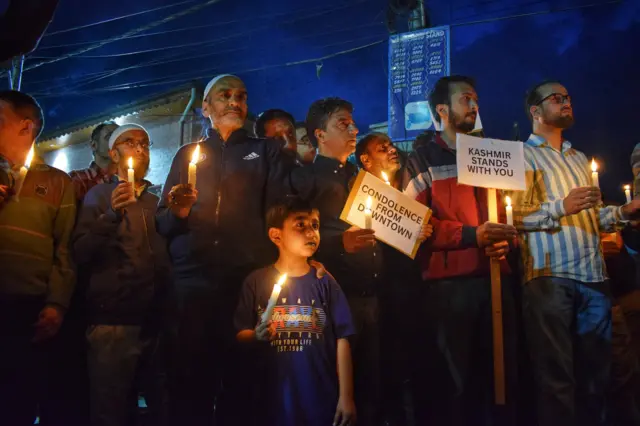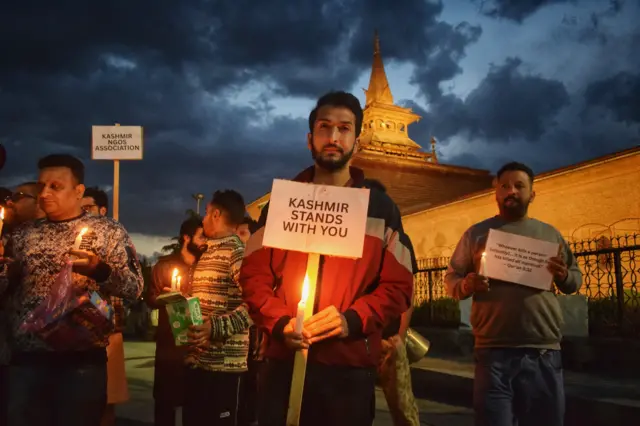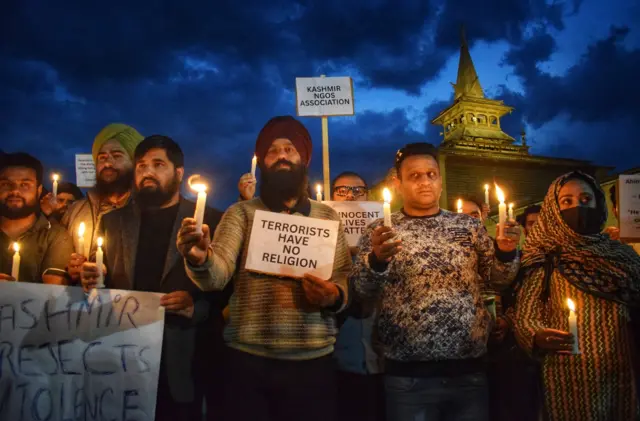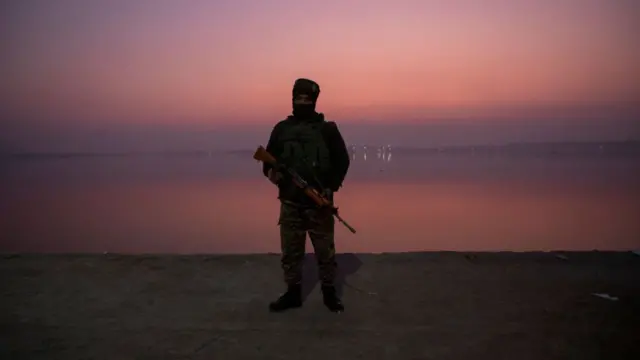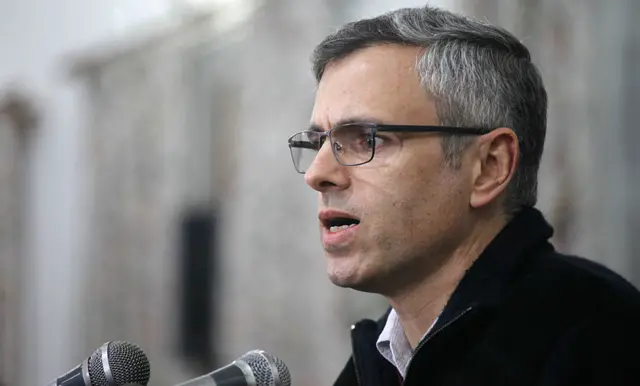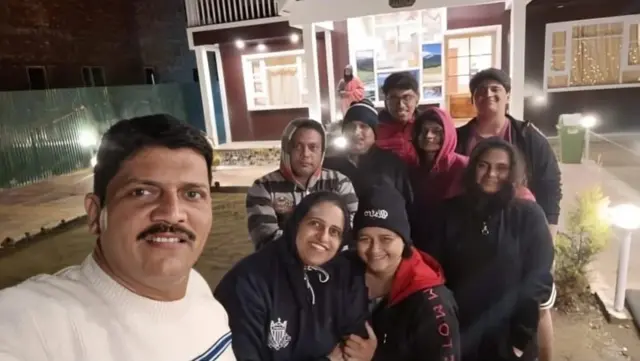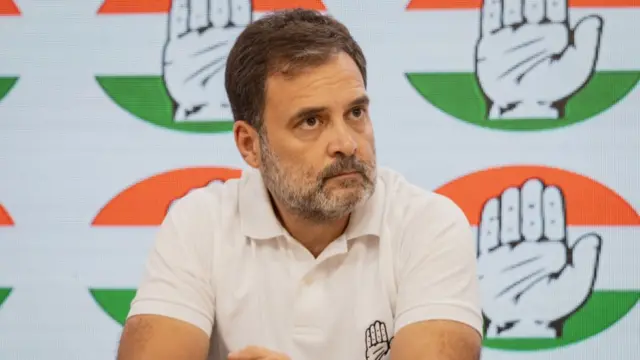'He was really excited' about trip, says victim's friendpublished at 04:54 British Summer Time
The friend of Kaustubh Ganbote, one of the men killed in the attack, has spoken to the Press Trust of India.
Sunil More, a close friend and neighbour, said Ganbote spent most of his life working to expanding his snacks business and rarely took time away from work.
"This was the first time he and his wife had decided to travel outside the city. They planned the trip with his close friend Santosh and his family. Only eight days ago he had told me about the Kashmir plan. He was really excited."
Ganbote had also recently become a grandfather, More said.
